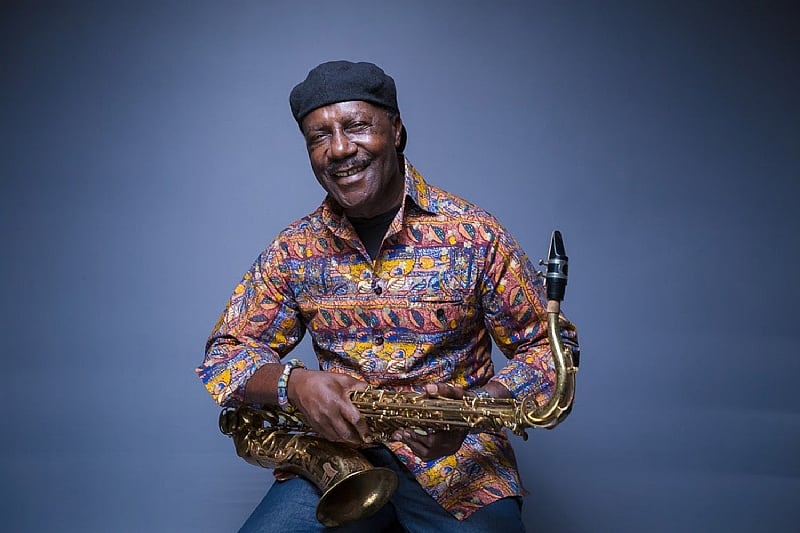Gyedu-Blay Ambolley, a celebrated figure in Ghanaian highlife music, has voiced his concerns regarding the increasing reliance on digital tools in contemporary music production. He argues that this dependence on technology, while offering convenience and speed, is simultaneously stripping away the artistic depth and creative ingenuity that once characterized the industry. Ambolley asserts that the readily available software and pre-made beats have fostered a culture of musical shortcuts, resulting in what he terms “sharp sharp” music – quickly produced and just as quickly forgotten. He contrasts this with the rigorous training and dedication of past generations of musicians who honed their skills through mastering instruments, studying music theory, and extensive live performances. These practices, he believes, cultivated originality and longevity in their music, qualities often lacking in today’s digitally driven creations.
Ambolley’s critique focuses on the erosion of the artistic process. He laments the diminished emphasis on musicianship and the prioritization of speed and ease over substance and creativity. The ease with which music can be created using digital tools has, in his view, lowered the bar for entry into the industry, resulting in a flood of music that lacks depth and staying power. He draws a parallel to the culinary world, suggesting that while fast food might satisfy immediate hunger, it lacks the nutritional value and complexity of a carefully prepared meal. Similarly, digitally manufactured music might offer instant gratification but fails to nourish the soul or stand the test of time. He believes the focus should be on nurturing talent and fostering a deeper understanding of musical principles, rather than simply churning out easily consumable but ultimately forgettable tracks.
The veteran musician also expresses disappointment in the current approach to collaborations, particularly the lack of involvement of experienced artists in the final stages of production. He recounts instances where younger musicians have sought his contributions but then sidelined him from the creative decision-making process, presenting the finished product without his input. This disregard for collaborative engagement, he argues, not only disrespects the contributions of seasoned artists but also deprives younger musicians of valuable mentorship and guidance. Ambolley believes that true collaboration involves a shared creative vision and mutual respect, not merely the appropriation of a senior artist’s name or voice for commercial gain.
Despite his reservations about the overuse of digital technology, Ambolley acknowledges that it isn’t inherently detrimental to music creation. He highlights the example of Kofi Kinaata, a contemporary Ghanaian artist who successfully integrates modern sounds with traditional storytelling, demonstrating that technological innovation and artistic integrity can coexist. Kinaata’s work, according to Ambolley, serves as a testament to the potential of technology when used judiciously, enhancing rather than replacing artistic skill and cultural grounding. He emphasizes the importance of using technology as a tool to augment creativity, not as a crutch that stifles originality and artistic exploration.
Ambolley’s concerns extend beyond the immediate impact on music quality to the long-term implications for the industry’s future. He stresses the critical role of mentorship in guiding emerging talents and preserving the rich musical heritage of Ghana. He warns that without proper guidance, young musicians risk losing their artistic direction amidst the overwhelming influence of digital trends. He calls for a renewed emphasis on apprenticeship and knowledge transfer, urging established artists to share their expertise and nurture the next generation of musicians. This mentorship, he believes, is crucial for fostering a sustainable musical ecosystem that values both innovation and tradition.
In essence, Ambolley’s critique is not a rejection of technology but a call for a more balanced approach to its integration in music creation. He advocates for a mindful utilization of digital tools that complements, rather than supplants, traditional musical skills and artistic vision. He emphasizes the importance of preserving the core values of musicianship: dedication, discipline, and a deep understanding of musical principles. By blending the best of both worlds – the technological advancements of the present and the rich heritage of the past – Ambolley believes that Ghanaian music can continue to thrive and evolve while retaining its unique identity and artistic depth. His commentary contributes to the ongoing dialogue surrounding the evolving landscape of music production and the delicate balance between embracing innovation and safeguarding artistic integrity.














